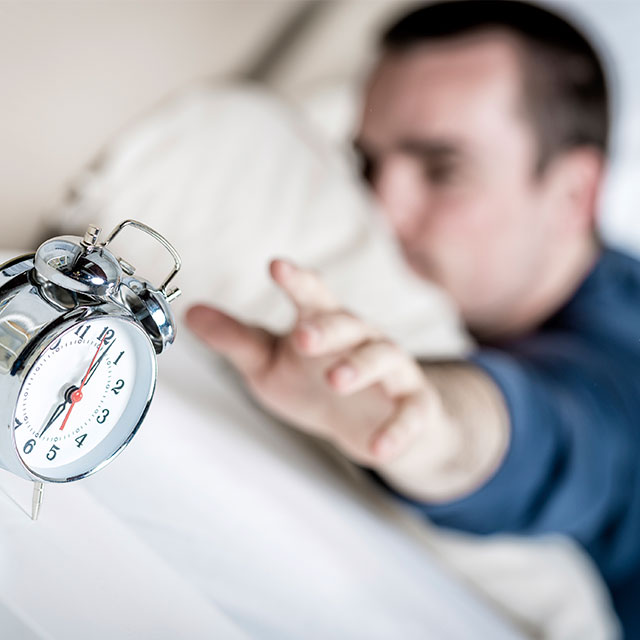Springing forward is harder than falling back. These tips can help with sleep patterns during the time change.
Banking up on sleep ahead of the time change when clocks spring forward an hour is a smart way to avoid the frantic feelings and lingering fatigue associated with daylight saving time — if you do it the right way.
“It’s really important to go into the time change without being significantly sleep deprived,” said Vanderbilt Sleep Disorders Center specialist Kelly Brown, M.D.
Brown recommends taking a nap of not more than an hour on the day before reporting back to work and also going to bed 15 minutes earlier each night during the days leading up to the time change.
“It’s really a good idea to not sleep in excessively over the weekend because it will make getting up on Monday even more difficult,” Brown said. “Taking a brief nap on the Sunday of the time change can be helpful to offset the sleep loss. A one-hour nap would be helpful, but not more than an hour. More than an hour could affect your nighttime sleep.”
A Sunday afternoon nap should offset the average of 40 minutes of lost sleep most people experience on the night before reporting back to work, she said.
She also recommends taking in some bright sunshine after rising from bed on the weekend of the time change because light helps regulate the body’s internal clock. If the weather is dreary, a brightly lit space can be a substitute.
The time change is more than an inconvenience, Brown said, noting that studies have linked it to increased incidences of stroke, heart attacks, workplace injuries and traffic accidents.
“It is going to be darker than usual driving into work Monday morning,” she said. “There can be increased accidents, including accidents involving pedestrians because it is darker and people don’t always account for that.”
Most people need a few days to a week to adjust to the time change. For others, especially night owls, the effects are longer lasting, she said. If fatigue and difficult sleep patterns persist for more than two weeks after the time change, a medical analysis may be warranted. Sleep disorders, such as obstructive sleep apnea, are very common, but often under-diagnosed — and effective treatments are available.
“If you are a person who has a difficult time falling asleep or staying asleep, or if you often feel tired in the daytime, you should speak to your primary care physician and consider an evaluation by a sleep specialist,” Brown said.
It may also be a good idea to consult your primary care physician about taking low-dose melatonin if you have trouble falling asleep with the time change, she said.
Tips to ease the daylight saving time transition:
- Don’t excessively oversleep on the weekend of the time change. Consider a Sunday nap of no more than one hour.
- Go to bed 15 minutes earlier each night, beginning on the Wednesday before the time change.
- Dim lights earlier leading up to the time change and avoid bright lights in the evening, especially from smart phones, computers and TV screens.
- Avoid alcohol and caffeine in the evening.
- Keep the bedroom cool and dark.
- Get morning exercise in sunlight on the weekend of the time change.
- Eat an early breakfast and dinner on the weekend before, and eat a good breakfast on the Monday morning after the time change.
This post was written by Tom Wilemon, an information officer in the Vanderbilt University Medical Center News and Communications Office.

If you have lingering sleep issues, talk with your health care provider about finding a sleep disorder program.Vanderbilt’s Sleep Disorders Center can help.




